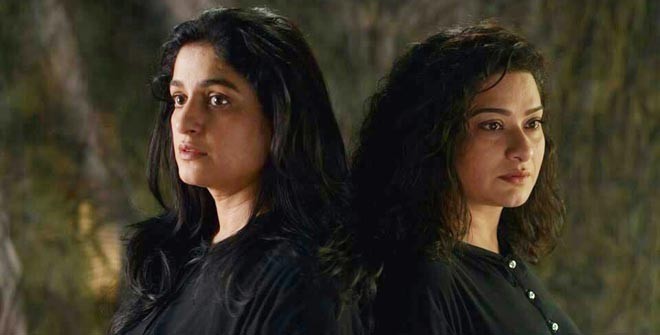

The play, titled Lorelie -- The Meditation of Loss, staged at Lahore’s Alhamra last week by Olomopolo Media had two versions staged on successive days -- one in English and the other in Urdu. The original play in English was performed by Nadia Jamil and the Urdu version by Sania Saeed.
Saeed had also translated the play into Urdu.
The play must have been chosen to be staged not only in Lahore but also in other cities of the country.
Usually, there may be causes that very few can dispute or disagree with and most would want to put in their bit to eradicate and eliminate the reasons that give rise to them. One such incident or crime is the sexual abuse of children -- pedophilia -- which can be followed by the murder of children for fear of the heinous act being exposed if things do not work out accordingly.
The play was staged to raise awareness about this heinous practice and as a prologue the audiences were directed by the production team to get themselves sufficiently motivated.
The play Lorelie by Tom Wright is based on the single character of a mother, Lorilei Guillory, who has lost her six-year-old son, Jeremy. A couple of appearances by the character of the offender serves only as a minor distraction from the great challenge of portraying the one-character role.
The play begins with the mother being anxious about the child not returning home. As time passes, her anxiety turns into anguish and then frenzy. She is not fully aware of what is happening to the child or where he is. She is in limbo, swinging from apprehension to despair. But as she comes to know that her child was murdered, she falls in a state of paroxysm.
So far so good, as this progression is within the ambit of expected behaviour.
Also, her breakdown is natural. But then there is a sudden change in her behaviour -- from one suffering in anguish, she changes into one who has developed a more philosophical insight into the tragic happening of death of her son. She begins to ponder on the causes and reasons that lead to such crimes and goes so far as to meet the man who perpetrated this heinous act.
Sadly, this transformation (of the mother) is not within the realm of a logical progression and, being too abrupt, is not able to carry the audiences along with any degree of conviction. It seemed the play had been written with the end pre-meditated -- and hence did not allow the main character and the entire situation to take a normal course. It seemed contrived and gave the impression of being a command performance.
The name of the director was not mentioned in the brochure, but it could be assumed that the two actresses had co-directed it.
Sania Saeed has been associated with the performing arts for decades. She started her career at the age of 10 and then went on to found Katha Theatre. She has won many awards, including Woman of Substance.
Nadia Jamil has a career spanning over three decades as well and includes television, stage and even an occasional film. She has also acted on Globe Theatre and is currently working on a film script.
Despite their vast experience, it must have been the nobleness of the cause that attracted Saeed and Jamil to the play.
It is a great challenge to play a one-character role. Both the actresses did put in their valiant best; perhaps, they were helped to some degree by lighting that was spot-on and placement of the props that was not tentative. The huge and vast expanse of the stage just could not be filed in to create an impact that was dramatic enough.
The play was part of the greater cause of supporting the Justice Project Pakistan, an organisation that is working with prisoners who are on death throes in the various prison houses of the country. As stated in the brochure of the play, it is campaigning for the abolition of death penalty in the country. It places forgiveness above revenge and, thus, calls for the restoration of an order that is based on compassion and greater understanding that human complexity requires.